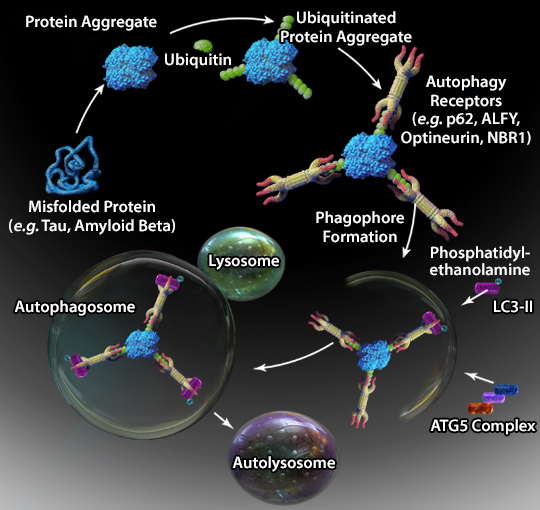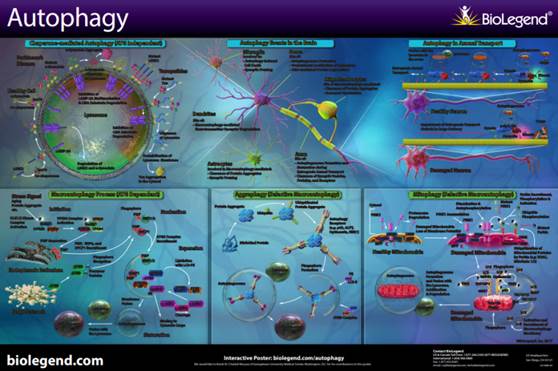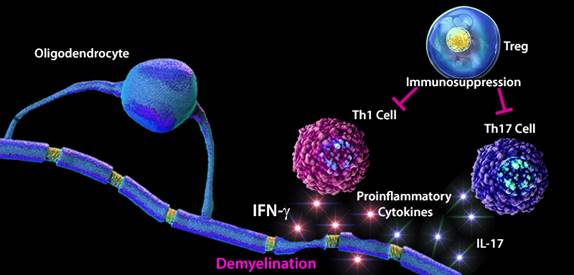 |
| Autophagy is a process that recycles cellular components in times of stress or starvation. There are several specialized forms of autophagy, including aggrephagy, which focuses on the degradation of protein aggregates. Aggregates like amyloid beta and tau are ubiquitinated and detected by cargo receptors like p62 (SQSTM1) and NBR1. They link aggregates to phagophores by binding to LC3. This leads to the formation of an autolysosome and breakdown of the aggregates. Aggrephagy may help preserve neurological function by destroying aggregates too large for proteasome-based degradation. A full review of autophagy and its specialized sub-forms can be found in a review by Gatica et al. BioLegend offers several highly specific antibodies for protein aggregates (e.g. Tau and Amyloid Beta), cargo receptors, and ubiquitin.  |
 |
 |
|
 |
Our poster provides comprehensive illustrations and mechanisms on autophagy, mitophagy, aggrephagy, and macroautophagy. You can learn more by requesting a copy of the poster today. |
 |
 |
Oligodendrocytes are important cells of the CNS that protect and insulate myelin sheaths. Learn more with our new oligodendrocyte webpage. We've also updated our neuroinflammation webpage with new content on the blood brain barrier and more. |
*Any references to promotions on this page may not be valid at this time. View our promotions page for the most up-to-date promotions.
 Login / Register
Login / Register 










Follow Us